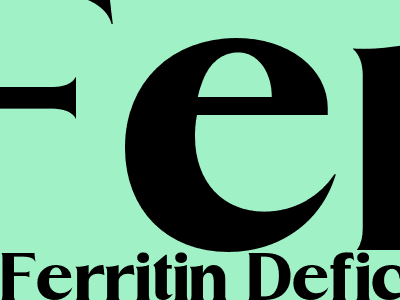Ferritin Deficiency: Causes, Symptoms, Diagnosis, and Treatment
What is Ferritin Deficiency?
Ferritin deficiency, a prevalent nutritional disorder, occurs when the body lacks sufficient ferritin. Ferritin, an iron-storage protein, plays a crucial role in maintaining the body's iron stores for healthy red blood cell production.
Causes of Ferritin Deficiency
Various factors can contribute to ferritin deficiency, including:
- Inadequate dietary iron intake
- Conditions leading to impaired iron absorption (e.g., celiac disease, Crohn's disease)
- Chronic blood loss (e.g., heavy menstrual bleeding, gastrointestinal bleeding)
- Pregnancy or conditions that increase iron demand
- Genetic disorders affecting iron metabolism
Symptoms of Ferritin Deficiency
In the early stages, ferritin deficiency may not manifest obvious symptoms. However, as iron stores deplete, symptoms can develop, such as:
- Fatigue and weakness
- Pale skin and shortness of breath
- Cold hands and feet
- Headaches or dizziness
- Brittle nails and hair loss
Diagnosis of Ferritin Deficiency
Ferritin deficiency is diagnosed through a blood test that measures ferritin levels. Normal ferritin levels vary depending on factors such as age, sex, and ethnicity.
Treatment of Ferritin Deficiency
Treatment for ferritin deficiency typically involves addressing the underlying cause and replenishing iron stores. This may include:
- Dietary modifications to increase iron intake
- Iron supplements or injections
- Treatment for underlying conditions causing blood loss or impaired iron absorption
Complications of Ferritin Deficiency
If left untreated, severe ferritin deficiency can lead to complications, including:
- Iron-deficiency anemia, characterized by inadequate red blood cells
- Impaired cognitive function
- Increased risk of infections
Prevention of Ferritin Deficiency
Preventing ferritin deficiency focuses on maintaining adequate iron intake through a balanced diet rich in iron-rich foods. Some good iron sources include
- Red meat
- Seafood
- Leafy green vegetables
- Fortified cereals and bread
Conclusion
Ferritin deficiency is a common nutritional disorder with various causes and potential health implications. By understanding the causes, symptoms, diagnosis, and treatment options, individuals can take proactive measures to prevent or manage ferritin deficiency and maintain optimal health.

Comments